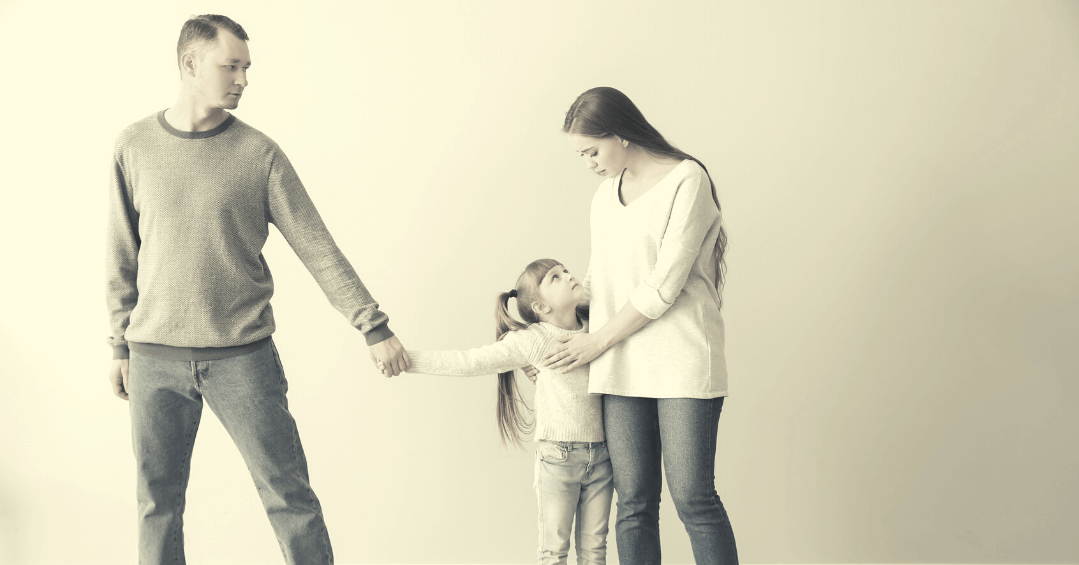Being a good parent while your heart is breaking is probably one of the hardest things you will ever have to do. You still have to get them to school, feed them, take them back and forth to activities, be there for them emotionally- all while you are trying to pick up the pieces of your old life and build a new one. There will be moments when all you really want to do is curl up into a ball and cry, but you might be wondering whether or not you should allow your children to see you this vulnerable.
The answer isn’t black and white. There is a lot of gray area when it comes to how much you should share with your children about your divorce. A lot of it depends on their age and their maturity level, but one thing that is clear- you should show them that you are a human being with real emotions that need to be worked through. Covering up your emotions can lead them to become closed off emotionally as adults.
So how do you walk this fine line of what to share and what not to share?
First, use your parental instinct.
You know your child best. If you feel that they can handle seeing you shed a few tears without them getting anxious, scared, worried, etc., then there is nothing wrong with being open with them in that way. However, it’s important to explain to them (in an age-appropriate way) why you are upset. You don’t want them thinking that you are upset because of them.
Second, be cautious with how you speak about their other parent.
Children can sense conflict, and when it’s blatantly in their face (i.e. one parent badmouths the other or makes them feel like they need to choose sides) it can cause them severe stress and anxiety. You divorced your ex, your child didn’t. Projecting how you feel about them onto your children could potentially damage their relationship with their other parent, not to mention the long-term negative effects it could have on their future romantic relationships.
Third, give them time to process the divorce.
While you may have been unhappy for years in your marriage and are more than ready to take the leap into divorce, to your children, this is all brand new. Most children need at least a year or two to process a divorce and adjust to their new normal. Be sensitive to their feelings during this time and allow them to be just as vulnerable with you as you are with them. You are their safe space, and there’s never a more important time than now to be that for them.
Finally, surround all of you with a good support system.
Support for you:
Sharing all of your feelings about the divorce with your children is tempting, especially if they are older, but oversharing can make them feel like they are in the middle of the conflict, and that’s not fair to them. This is your divorce, not theirs. While it’s important for them to see their parent overcoming big challenges, like a divorce, it’s equally important that they are not exposed to more than they need to be. Bigger issues, like how you feel about your ex dating again, scheduling conflicts, infidelity, etc. should be addressed with your ex, a therapist, divorce coach, or trusted family member or friend. The more support you have around you, the less likely you’ll be to slip up and say something to your children that you’ll regret later on.
Support for you kids:
It’s also important that your children have a good support system. A therapist can be a great asset to them as they start this new chapter of their life. Children are more likely than adults to keep their emotions bottled up, especially if they feel it will upset one or both of their parents, so having a neutral third party for them to talk to is a good idea. If you aren’t sure where to start with setting your child up with a therapist, reach out to their school guidance counselor. They usually have a list of recommendations available.
Vulnerability is not a weakness, and it’s never a bad thing to show your children the right way to process big emotions like the anger, grief, and sadness that can come along with a divorce. Just keep in mind that adult problems should stay adult problems, and try your best not to do anything to jeopardize their ability to continue their relationship with their other parent. Most importantly, continue to love them and be there for them. You’ll get through this- together.




